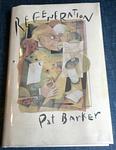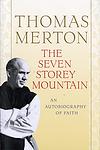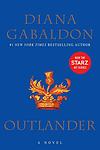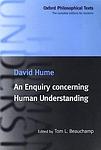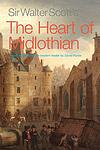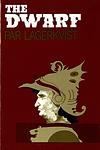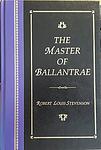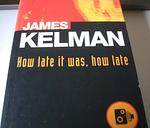The Greatest "Scotland" Books of All Time
Click to learn how this list is calculated.
This list represents a comprehensive and trusted collection of the greatest books. Developed through a specialized algorithm, it brings together 284 'best of' book lists to form a definitive guide to the world's most acclaimed books. For those interested in how these books are chosen, additional details can be found on the rankings page.
Genres
The "Scotland" category of books encompasses literature that is set in Scotland, written by Scottish authors, or explores Scottish culture, history, and traditions. These books may include fiction, non-fiction, poetry, and memoirs that capture the unique spirit of Scotland, its landscapes, people, and folklore. From the rugged Highlands to the bustling cities, the "Scotland" category offers a diverse range of books that celebrate the rich heritage and enduring legacy of this proud nation.
Countries
Date Range
Reading Statistics
Click the button below to see how many of these books you've read!
Download
If you're interested in downloading this list as a CSV file for use in a spreadsheet application, you can easily do so by clicking the button below. Please note that to ensure a manageable file size and faster download, the CSV will include details for only the first 500 books.
Download-
1. To the Lighthouse by Virginia Woolf
This novel is a pioneering work of modernist literature that explores the Ramsay family's experiences at their summer home on the Isle of Skye in Scotland. The narrative is divided into three sections, focusing on a day in the family's life, a description of the house during their absence, and their return after ten years. The book is known for its stream of consciousness narrative technique and its exploration of topics such as the passage of time, the nature of art, and the female experience.
-
2. The Prime of Miss Jean Brodie by Muriel Spark
The novel is set in 1930s Edinburgh and follows the story of six girls under the tutelage of an unconventional teacher, Miss Jean Brodie. Miss Brodie, in her prime, takes it upon herself to educate the girls about life, love, politics, and art, often disregarding the traditional curriculum. The narrative explores the influence of Miss Brodie on the girls, the consequences of her nonconformist teachings, and the ultimate betrayal that leads to her downfall.
-
3. Macbeth by William Shakespeare
This classic play follows the tragic tale of Macbeth, a Scottish general whose ambition is sparked by a prophecy from three witches that he will one day become King of Scotland. Consumed by ambition and spurred on by his wife, Macbeth murders King Duncan and takes the throne. However, guilt and paranoia plague him, leading to a reign of terror and further bloodshed. His desperate attempts to cling onto power lead to his downfall, illustrating the destructive power of unchecked ambition.
-
4. The Life of Samuel Johnson by James Boswell
"The Life of Samuel Johnson" is a comprehensive biography that chronicles the life of one of the most prominent English literary figures of the 18th century. The book provides an in-depth account of Samuel Johnson's life, his literary works, and his significant contribution to English literature. It also offers a detailed portrait of his personality, his relationships, his struggles with depression and illness, and his views on a variety of subjects. The book is as much a biography of Johnson as it is a portrayal of 18th-century England.
-
5. Regeneration by Pat Barker
"Regeneration" is a historical and anti-war novel set in a mental hospital during World War I. The narrative focuses on the experiences and interactions of a psychiatrist and his patients, most of whom are soldiers suffering from severe shell shock. The novel explores themes of masculinity, identity, and the psychological effects of war, while also critiquing the societal pressures and expectations that led many men to enlist and subsequently suffer from mental trauma.
-
6. The Private Memoirs and Confessions of a Justified Sinner by James Hogg
Set in 18th century Scotland, the novel explores the psychological downfall of a deeply religious man who believes he is predestined for salvation and thus justified in committing a series of murders. He is driven to this path of self-destruction by a mysterious stranger who may be either a devilish tempter or a manifestation of his own deranged mind. The book serves as a critique of religious fanaticism and a chilling exploration of the dark side of human nature.
-
7. The Thirty-Nine Steps by John Buchan
Set on the eve of World War I, the novel follows an ordinary man who becomes entangled in a dangerous plot after a mysterious stranger shows up at his apartment, claiming to be a spy. When the stranger is murdered, the protagonist is falsely accused and becomes a fugitive, fleeing to the Scottish highlands. He must unravel a conspiracy of international espionage and prevent a political assassination to clear his name.
-
8. The Wealth of Nations by Adam Smith
This influential economic book presents a groundbreaking theory that argues for free market economies. The author posits that individuals acting in their own self-interest within a system of natural liberty will result in societal benefit, a concept often referred to as the "invisible hand" theory. The book also critiques mercantilism and explores concepts such as the division of labor, productivity, and free markets. It is widely considered one of the foundational texts in the field of economics.
-
9. The Wasp Factory: A Novel by Iain Banks
The novel is a dark and disturbing tale of a 16-year-old boy named Frank who lives on a secluded island with his eccentric father. Frank, who has killed three children in his past, spends his time engaging in violent rituals and maintaining his "Wasp Factory," a barbaric contraption he uses for divination. The narrative takes a turn when his older brother, who is institutionalized, escapes and heads home, leading to shocking revelations about their family's past and Frank's identity.
-
10. Othello by William Shakespeare
"Othello" is a tragic play about a Moorish general in the Venetian army who is manipulated by his ensign into believing that his wife is unfaithful. Consumed by jealousy, the general kills his wife, only to discover that she was innocent. Filled with remorse, he then takes his own life. The play explores themes of love, jealousy, betrayal, and racism.
-
11. Lanark by Alasdair Gray
"Lanark" is an unconventional narrative that combines elements of fantasy, dystopia, and realism. The protagonist, a man named Lanark, moves through two parallel existences. In one, he's a young man named Duncan Thaw in post-war Glasgow, struggling with his artistic ambitions and personal relationships. In the other, he's Lanark in the grim, bureaucratic city of Unthank, suffering from a mysterious skin condition and grappling with his identity and purpose. The novel explores themes of love, alienation, creativity, and the human condition, presenting a complex and thought-provoking portrait of life and society.
-
12. The Seven Storey Mountain by Thomas Merton
This book is an autobiography of a man who, after a youth filled with worldly experiences and ambitions, converts to Catholicism and chooses to live his life in a Trappist monastery. His journey from a secular life to a deeply spiritual one is filled with introspection and profound insights about the nature of faith and the quest for a meaningful life. His story is a powerful testament to the pull of spiritual enlightenment and the peace that comes from dedicating one's life to a higher purpose.
-
13. The Expedition of Humphry Clinker by Tobias Smollett
This novel is a humorous epistolary narrative, told through a series of letters, that follows the adventures of the Bramble family as they travel throughout England and Scotland. The family's travels are filled with a variety of comical incidents, and their encounters with different people and places provide a satirical commentary on 18th century British society. The novel also explores themes of class, romance, and the contrast between city and country life.
-
14. Outlander by Diana Gabaldon
The novel follows a World War II nurse who accidentally time travels back to 18th century Scotland. There, she meets a handsome and brave Scottish warrior and is torn between her loyalty to her husband in her own time and her growing love for the warrior. As she becomes more entwined in the past, she must navigate the dangers of a time not her own, including political unrest and violence, while trying to find a way back home.
-
15. An Enquiry Concerning Human Understanding by David Hume
This philosophical work explores the nature of human knowledge, arguing that all of our understanding comes from experience rather than innate ideas. The author challenges the idea of causality, suggesting that our belief in cause and effect is based on habit rather than logical reasoning. The book also discusses the limitations of human understanding, including the inability to fully comprehend the concept of God or the soul, and the impossibility of certain knowledge. The author's skepticism about traditional philosophical concepts has had a significant influence on later philosophers and the field of epistemology.
-
16. Kidnapped by Robert Louis Stevenson
This adventure novel follows the journey of a young Scottish man, David Balfour, who is tricked by his uncle and sold into slavery. After being shipwrecked, he partners with a Jacobite rebel, Alan Breck Stewart, and they journey across the Scottish Highlands, evading authorities and battling foes. Throughout the narrative, themes of justice, friendship, and courage are explored, set against the backdrop of 18th-century Scottish politics.
-
17. The Heart Of Midlothian by Sir Walter Scott
The novel is a historical tale set in 18th-century Scotland, revolving around Jeanie Deans, a young woman of strong moral character, who embarks on a daunting journey from Edinburgh to London to seek a royal pardon for her wrongfully accused sister, Effie, who faces execution. Along the way, Jeanie encounters various characters from different strata of society, confronting issues of justice, morality, and national identity. Her steadfast loyalty and unwavering principles highlight the cultural and social tensions of the time, as the narrative intertwines personal drama with broader historical events, including the Porteous Riots and the influence of the Scottish Reformation.
-
18. Trainspotting by Irvine Welsh
This novel is a gritty, raw portrayal of a group of heroin addicts living in Edinburgh, Scotland. The narrative is non-linear and told from multiple perspectives, providing a deep dive into the minds and lives of these characters. The story explores themes of poverty, addiction, friendship, and the struggle to escape one's circumstances, all set against the backdrop of a bleak urban landscape. It is known for its strong Scottish dialect, graphic content, and dark humor.
-
19. The Dwarf by Par Lagerkvist
"The Dwarf" is a dark, philosophical novel set in the Italian Renaissance, narrated by a malevolent court dwarf who serves a prince. The dwarf is a symbol for the darker side of humanity, embodying all the malice, deceit, and manipulation that one can possess. His actions and viewpoint provide a cynical commentary on human nature and the moral complexities of power, war, and love. The novel explores themes of good and evil, faith and doubt, and the destructive side of human nature.
-
20. Eye Of The Needle by Ken Follett
Set during World War II, the novel revolves around a ruthless German spy known as 'The Needle' due to his preference for a stiletto as his killing tool. His mission is to uncover the Allies' invasion plans and relay them to Hitler, potentially changing the course of the war. However, his plans are threatened when he becomes stranded on an isolated island with a young, lonely woman and her disabled husband, leading to a tense game of cat and mouse.
-
21. Dialogues Concerning Natural Religion by David Hume
This philosophical work is a series of discussions between three characters who explore the nature of God's existence through the lens of empirical evidence and reason. The dialogues delve into arguments for and against the existence of a divine creator, touching on the problem of evil, the argument from design, and the limits of human understanding. Through these conversations, the text critically examines the rational basis for religious belief, questioning the traditional arguments for God's existence and highlighting the complexities and contradictions inherent in theological explanations of the universe. The work is a seminal contribution to the philosophy of religion, showcasing the author's skepticism towards religious dogma and his commitment to empirical inquiry.
-
22. Waverley by Sir Walter Scott
Set during the Jacobite uprising of 1745, this historical novel follows the story of Edward Waverley, an English gentleman who is sent to Scotland by his father. There, he becomes embroiled in the rebellion, torn between his loyalty to his family and the king, and his sympathy for the Jacobite cause. The novel explores the complexities of politics, culture, and identity during this turbulent period in Scottish history.
-
23. Rob Roy by Walter Scott
The novel is set in the 18th century and follows the journey of a young Englishman, Frank Osbaldistone, who travels to Scotland to retrieve a stolen fortune from the outlaw, Rob Roy. Throughout his journey, Frank becomes entangled in the Jacobite rebellion, falls in love with a Scottish woman, and learns of the complexities of Scottish politics and culture. The story is a mix of historical fact and fiction, with Rob Roy serving as a symbol of the Scottish struggle for justice and independence.
-
24. The Master of Ballantrae: A Winter's Tale by Robert Louis Stevenson
"The Master of Ballantrae: A Winter's Tale" is a captivating adventure story set in Scotland during the Jacobite rebellion of 1745. The narrative revolves around two brothers, James and Henry Durie, who are torn apart by their conflicting loyalties to the English king and the exiled Stuart court. The elder, James, is presumed dead after a lost battle, but returns years later to claim his inheritance, leading to a bitter feud that spans continents and decades. The story is filled with duels, treachery, shipwrecks, and buried treasure, exploring themes of love, hate, revenge, and the destructive power of obsession.
-
25. How Late It Was, How Late by James Kelman
The novel is a stream-of-consciousness narrative told from the perspective of Sammy, a shoplifter and ex-convict from Glasgow who wakes up in an alley after a two-day drinking binge to find he is completely blind. As Sammy struggles to navigate his new reality, he contends with bureaucratic systems, confronts his past, and grapples with his relationships, all while trying to understand and adjust to his sudden loss of sight. The story is a gritty exploration of working-class life, the human condition, and the nature of reality.
Reading Statistics
Click the button below to see how many of these books you've read!
Download
If you're interested in downloading this list as a CSV file for use in a spreadsheet application, you can easily do so by clicking the button below. Please note that to ensure a manageable file size and faster download, the CSV will include details for only the first 500 books.
Download



